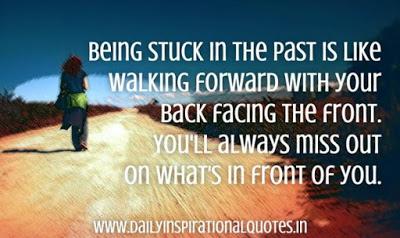
Coulda, woulda, shoulda. I wish I’d, if only I’d, had I known….
Haunting words, sometimes, aren’t they.
I think everyone in life can find something that causes them to look back with just a twinge of self-doubt (or maybe a ton!). Feelings of guilt and inadequacy often follow. Sometimes we are our own worst critics, spending so much time focusing on regrets of choices that didn’t turn out as we hoped - that we paralyze ourselves into fear of choices in our futures. Sometime we are guilty of wishfully thinking our lives away, wondering how it could have been different if we had made a different choice back when.That can be especially true if you take seriously the responsibility for good and poor choices, or the importance of doing your best to do the things God wants you to do. In those cases, when things don’t turn out as you anticipated, you then can even question whether you were listening to God well or ignoring the directions He was giving you. The trouble is, you can spend the rest of your life analyzing things like this, and never really get anywhere because of it. Sometimes we just make mistakes. Sometimes they aren’t mistakes, it’s just that we didn’t have the foresight to realize what all the consequences would be, so were surprised when unexpected results came. I always like the notion of realizing that, sure, if I had known then what I know now I might have made a different choice…BUT I DIDN’T KNOW. More often than not in life, I feel like I did my best to make the best choice I knew how to make with the best advice and what information I had available at the time. If I had it to do over again, I might make other choices, but I don’t have it to do again, and even if I did, without retrospect I’d probably still make the same choices. On the other hand, things I have learned from choices in the past that didn’t turn out as expected can help inform me to approach choices differently choices in the future.On the other hand I don't believe it is wise to flippantly approach the matter of decision making and choices.
It isn’t healthy to just blow off our mistakes as if they didn’t matter, nor affect anybody but ourselves. Sometimes the poor choices we make impact the lives of others for years to come, and we need to own that, as well as learn how to be wiser about making choices.It seems to me there is a balance to be struck. Not so overburdened that we overly dwell on the past and are in bondage to the guilt of it, nor so flippant that we are oblivious to the impact of our choices and our responsibility for them. We need to accept our responsibility, and also learn to forgive ourselves. I have known people who would vocalize that they believe God could forgive them, but they didn’t think they could ever forgive themselves for choices they had made. That is not a very healthy place to be, if for no other reason than that such a statement makes oneself more important than God!I like the example we find in the Bible, where the story is told of Peter and his threefold denial of Jesus. After he did so, the scripture tells us he went out and wept bitterly, realizing his sin. But in John 21, we have the incident of Jesus and his threefold restoration of Peter, in which Jesus does not absolve Peter from responsibility for his choice, but at the same time assuring Peter that he still had a place in the service of Christ. Jesus did not compel Peter to spend the rest of his life dwelling on his past, but urged him to learn from it and to use it as he pursued a higher future.

